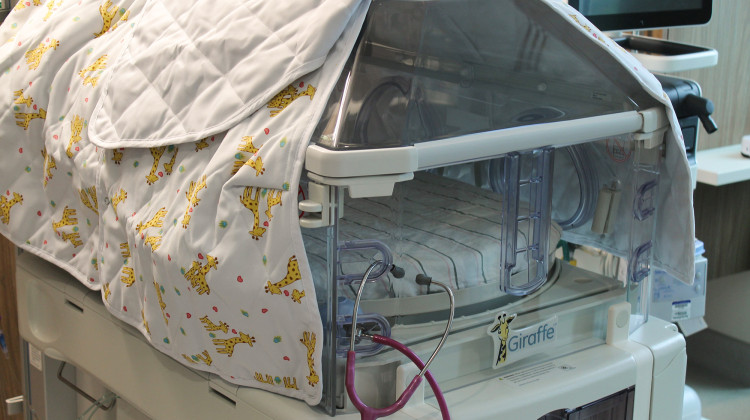Indiana suspended a Medicaid policy that locked participants out of coverage for failing to confirm their eligibility for health care with the state.
The state's Medicaid program, called the Healthy Indiana Plan, requires members to submit paperwork to the state every 12 months to verify their eligibility for Medicaid. If that paperwork isn’t completed, they will be ineligible for coverage for up to six months.
Indiana’s Family and Social Services Administration, which is responsible for maintaining HIP, announced Oct. 18 it would “pause” locking out members who do not verify their eligibility.
But agency officials have declined to discuss details of the change, including how many people are affected or how long the "pause" could last.Additional questions were directed to FSSA spokesman Jim Gavin, who could not speak with Side Effects by phone Thursday.
HIP members who were locked out of coverage for failure to renew their eligibility can now re-apply for coverage, according to an email FSSA sent to organizations that work with state Medicaid recipients.
In reports to the Centers for Medicare and Medicaid Services, Indiana has stated the most common reason HIP members lose coverage is failure to verify eligibility for Medicaid through the redetermination process.
From January to March of this year, HIP enrollment fell 4 percent, according to reports submitted to CMS. From April to July, enrollment fell an additional 3 percent.
In February, CMS approved Indiana’s waiver to expand Medicaid through 2020. As Side Effects previously reported, the new waiver approved several controversial aspects of the state’s previous waiver, some of which were stopped by the federal government.
These included lockout periods for not confirming health care eligibility and not paying into a health savings account called a POWER account. A requirement for able-bodied adults to work or participate in job training to receive coverage will go into effect next year.
Editor's Correction: This story was edited to clarify the how the state decides to lock participants out of coverage.
This story was produced by Side Effects Public Media, a news collaborative covering public health.
 DONATE
DONATE









 Support WFYI. We can't do it without you.
Support WFYI. We can't do it without you.